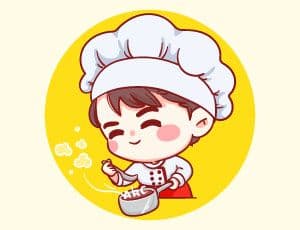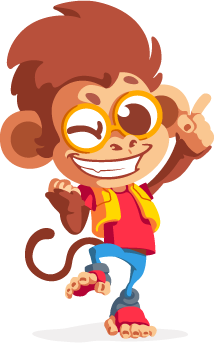Escola Games | Jogos Educativos
https://www.escolagames.com.br
Teacher's support sheet

Alphabet Soup
Are you good at cooking? And guessing? Follow the tips to guess which word is in the alphabet soup and click on the letters to form it. After guessing ten words, you’ll have a delicious warm soup to taste!

Teacher's tips
Level of education: Elementary School I
Age: 05 to 08 years
The Letters Soup game is a means of offering children a pleasant and motivating learning environment, with possibilities for developing various skills. It is even a game that represents the possibility of being worked on throughout the literacy process, and not just as recreation. With this game, children will be able to expand their vocabulary, develop reading behavior, so that they communicate well and produce knowledge, as well as gain access to information in an autonomous, conscious and fun way. [FIM-DICA]
Learner outcomes
Understand the use of the alphabet in the construction of words;
Expand vocabulary;
Segment words orally and through writing into syllables;
Identify similarities and differences between the sounds of initial, middle and final syllables;
Relate sound elements (syllables, phonemes, parts of words);
Compare words;
Identify and differentiate the letters of the alphabet;
Develop and improve reading and writing;
Memorize the conventional writing of words;
Develop attention and concentration;
Develop motor coordination;
Fix knowledge acquired in the classroom;
Teachers' goals
Work on students' reading and writing skills;
Provide, in a playful and creative way, the progress in the reading and writing process of children;
Expand the class's repertoire of letters and words;
Offer a playful and pleasurable proposal that allows the student to associate letters with their spelling;
Offer the game as a didactic resource to fix the content worked in the classroom;
To favor the understanding of the construction process of words through the letters;
Suggestions of approaches for the teacher
(Suggestion 1) As a tip for this game, it is important to talk to the children that the vowel A is the best option to start the game, as it is present in most words. The consonant R is also a good letter option to take a risk right at the beginning. Propose the game in pairs, where one should assist and participate in the other's move, exchanging knowledge and ideas. Children should pay attention to the hint that appears for each word, as it is an important ally in finding the correct answer. Students should record the words that were found in each move to use them in other proposals in the classroom.
(Suggestion 2) Form a sentence with the words.
(Suggestion 3) Write words that have the same initial.
(Suggestion 4) Look up the word's meaning in the dictionary.
(Suggestion 5) Break the words into syllables.
(Suggestion 6) Sort according to the number of syllables.
(Hint 7) Word dictation.
(Suggestion 8) Bring a packet of alphabet pasta to the classroom and distribute some to each student or to groups. Ask them to form words, then ask them to stick them on a sheet of paper. Display the works.
(Suggestion 9) Ask the students to gather PET bottle caps, then cut and paste each letter of the alphabet inside the caps, distribute them to the students and ask them to form words and then sentences.
(Suggestion 10) Make a reading circle and read different stories to the students.
(Hint 11) Build a memory game. On side 1 place the figure of an animal or object, on side 2 place the first letter corresponding to the object.
(Suggestion 12) Make the letter domino. For this you should use rectangular pieces of cardboard or wood. Draw a line with a pen dividing the piece into two parts. In each part, glue a letter of the alphabet and distribute several pieces to the students. Forming groups ask them to assemble the words using dominoes. They can borrow from the table, but never from colleagues. The one with the fewest pieces in hand wins.
More about the content
The last decades represented times of intense changes in Brazilian education, including in the literacy process, today children start school earlier, which often forces early learning. This pressure can cause serious damage to the child's mental health, as their time to learn is being neglected to meet the needs of the system. However, positive changes also happened, such as the expansion of digital technologies, expanding possibilities for teaching and learning for children. Currently, the teacher can provide recreational activities that encourage thinking about writing, making it a curious object to be explored. The use of games and recreational activities highlights and opens up the possibility for essential learning rights for children, among them; participation and interaction in the classroom both in individual work and group work; the improvement of students' questioning and argumentation; respect for colleagues and teacher's speaking shifts; the mastery of the word and writing, the coordination of motor skills among many others.
It is important to emphasize that during the process the learning time of each student is observed, in addition it is necessary to be attentive to the ways of learning, respecting the student in their differences.
